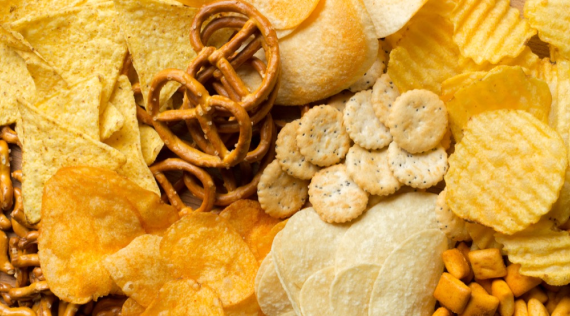Snacks: useless or healthy food
在世界各地,消费者的兴趣转向健康饮食的趋势-即使在零食领域也是如此。 该公司的专家"生态资源"股份公司参加了问题的主题在球体杂志的讨论:"糖果和面包业"。
"事实上,零食不仅受到千禧一代的喜爱。 购买零食的动机可以是不同的-这是一个轻微的饥饿感的淬火,以及啤酒或其他饮料的全面小吃,以及吃的欲望,吃好吃的东西。 大多数俄罗斯人都把熟悉的"零食"这个词与各种薯条联系起来。 但是,零食并不仅限于它们,所以我建议你弄清楚什么适用于零食,什么不适用。
从英文翻译,小吃是一种简单的快速小吃。 也就是说,旨在立即满足饥饿的食物。 作为一项规则,零食具有高热量含量,这使他们能够迅速饱和人体的营养物质,可以保持其色调和工作状态。
Snacks are very popular on the world food market. The largest number of snacks is consumed in the UK and in the USA.
In 1937, the Association of snack manufacturers was established, which includes more than eight hundred of the largest foreign manufacturers. Since the 90s of the XX century, the rapid development of the "snacks" market has begun in our country. New types of snacks began to appear on the shelves of Russian stores. Today, consumers can purchase a wide variety of light snacks.
According to the international classification, snacks are potato and corn chips, cheese and meat portion snacks, straws, cookies, muesli, crispy flakes, nuts, dried fruits, chocolate bars. In Russia, traditionally, these products belong to different groups of goods (meat, fruit and vegetable, confectionery, food concentrates), and therefore they are divided into sweet (corn flakes, breakfast cereals, pads, corn sticks, muesli, etc.) and unsweetened (classic chips, crackers, extrusion products)."
Natalia Belousova, Head of the Application Laboratory of JSC "ECO RESOURCE"
The whole issue can be read here




